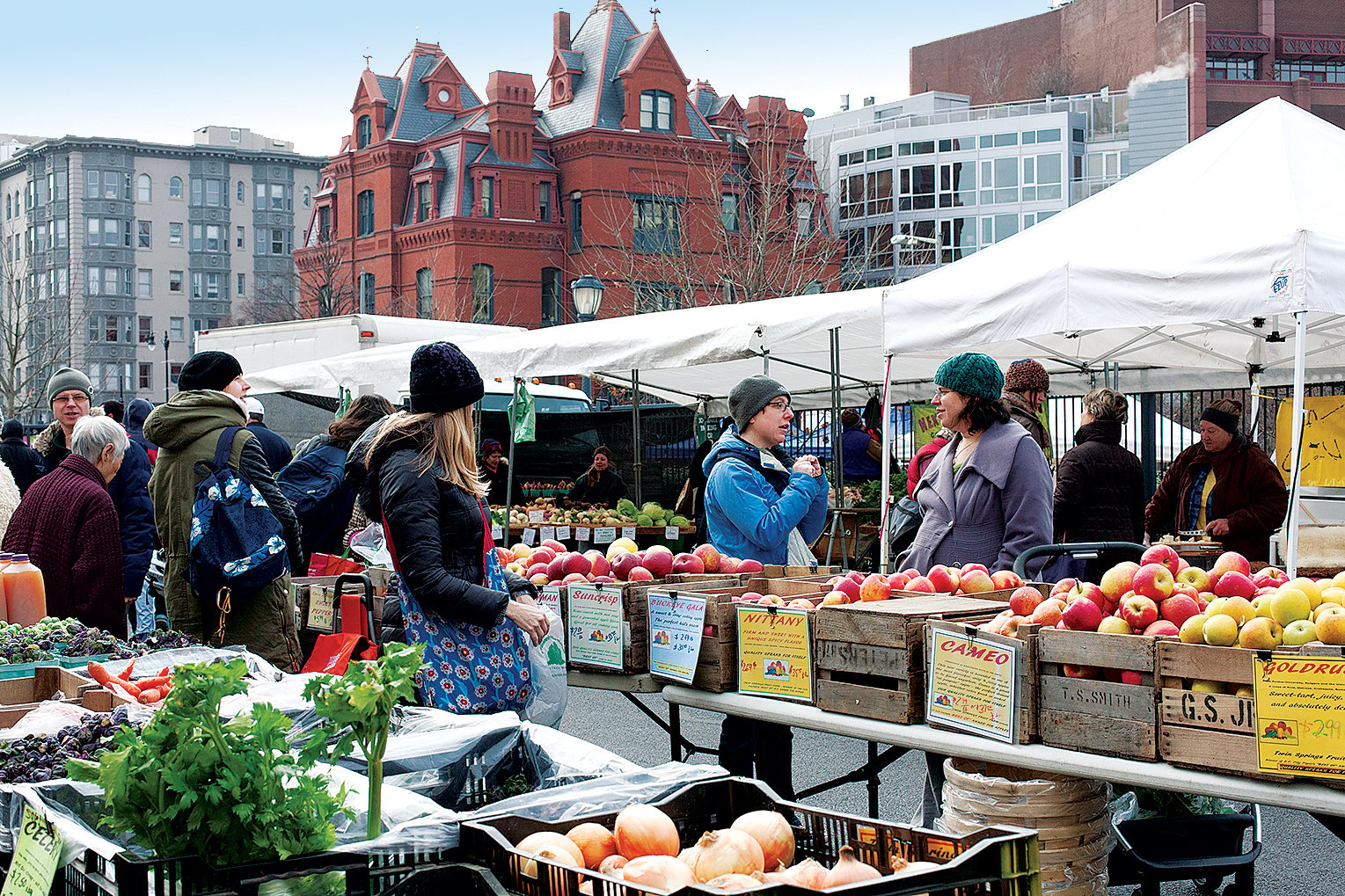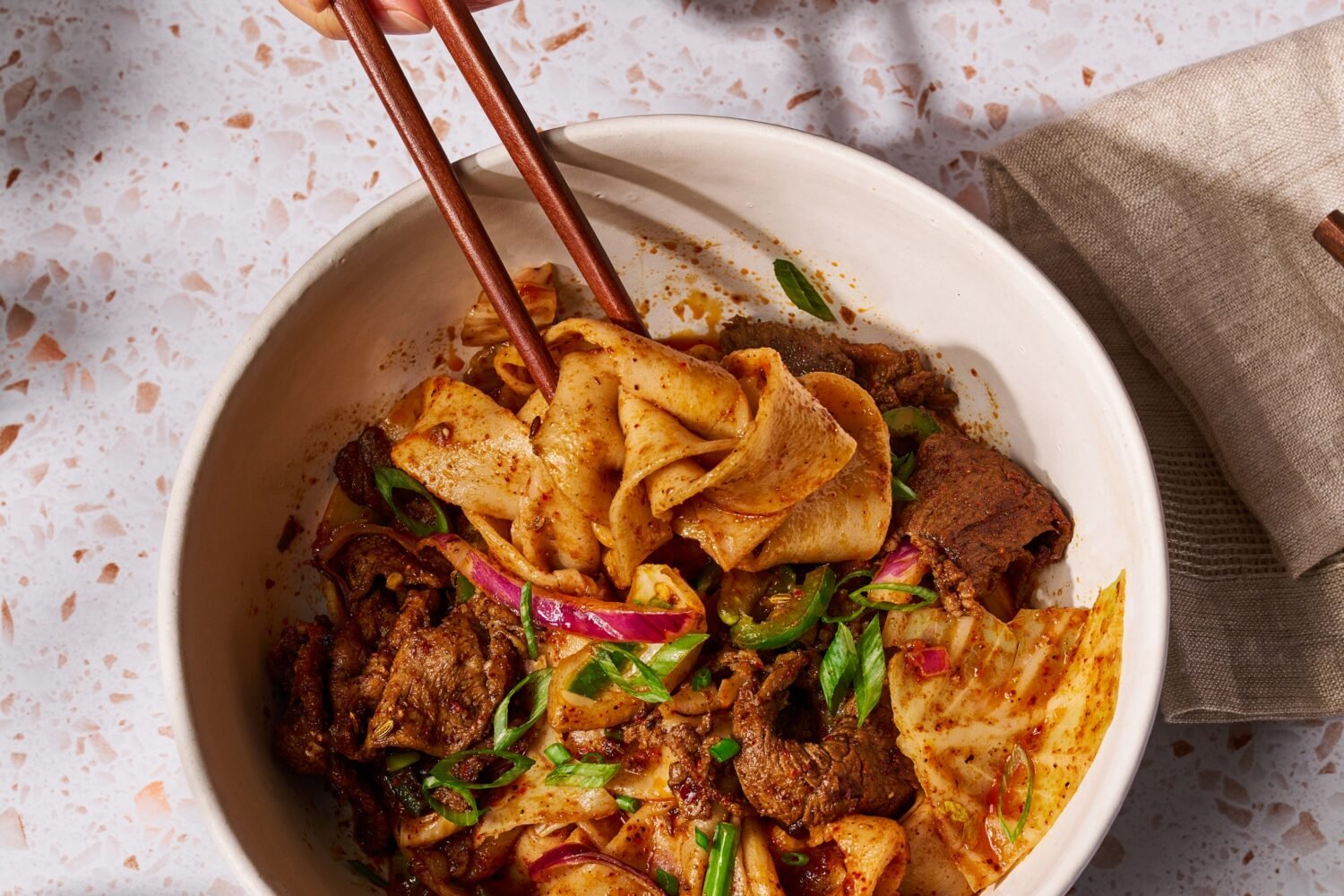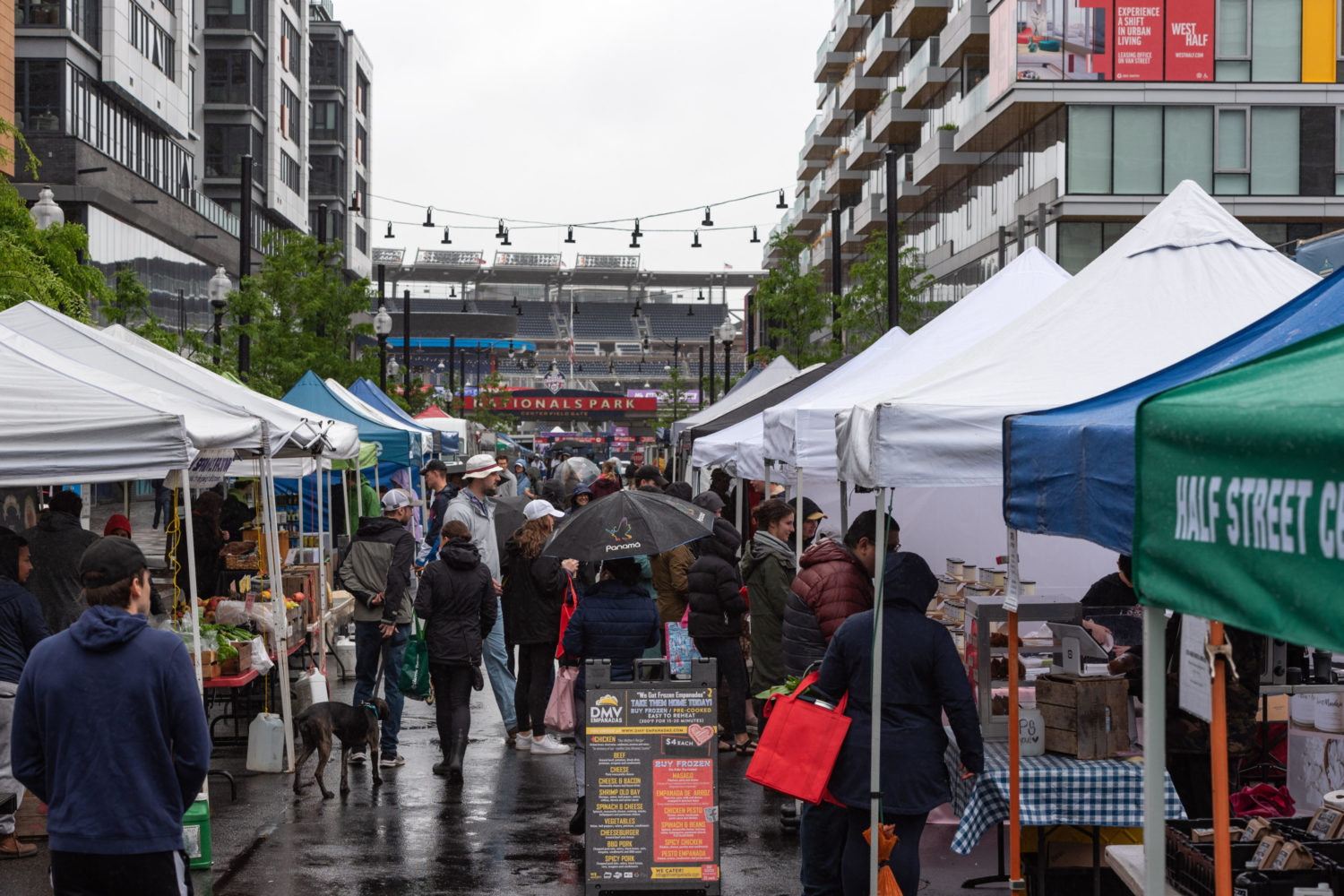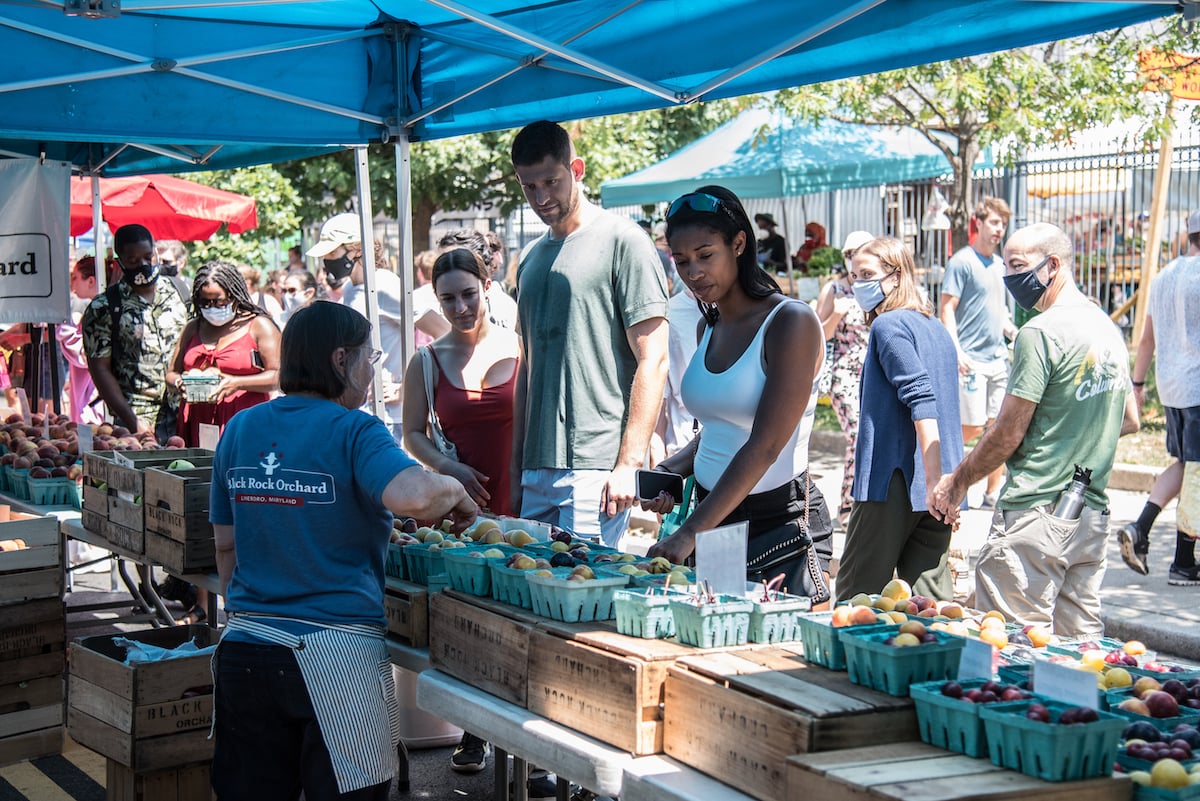Puddin’ chef/owner Toyin Alli opened a location of her Cajun-Creole food business at the White House FreshFarm market in 2013 with a specific goal in mind: she hoped it would lead to a prized spot at its sister market—the historic Dupont Circle location. That 23 year-old market, the biggest and busiest of all 33 branches in the nonprofit FreshFarm network, is considered to be the crown-jewel location for local growers and producers. Pre-Covid, hundreds of people would flock to nearly 50 farm stands and prepared food stalls on any given Sunday (now there’s an OpenTable reservation system to control the crowds). Each year, FreshFarm is flooded with over 500 applications for a Dupont spot.
Alli spent her first four years at the White House location operating a pop-up tent kitchen. She then transitioned to a food truck so she could better serve her growing customer base (she also has locations at Union Market and Eastern Market ). While she says the White House market location is profitable—especially with the downtown lunch crowd—she kept her sights on Dupont, which according to a 2018 FreshFarm report accounts for 46 percent of all market revenues. Alli says her applications were repeatedly rejected with little to no feedback as to why.
“It was always told to me and other vendors that the process is about tenure, paying your dues on time, and not having a duplicate product at the market, which wasn’t a problem for me since there aren’t a lot of Cajun-Creole vendors,” says Alli.
Food trucks aren’t currently allowed at the Dupont location, which leans more heavily towards farm stands. But Alli says she explicitly stated in her application that she’d be willing to return to her original pop-up kitchen format. Her frustration grew as she witnessed other prepared food vendors—some brand new to FreshFarm—seemingly breeze into Dupont (current businesses include Call Your Mother bagels, Cucina Al Volo pasta, and Cowbell Kitchen breakfast sandwiches). She says she was getting ready to write an email to the board of directors to express her frustration when, during a week of protests against racial injustice in Washington and across the nation, FreshFarm posted a message to its nearly 23,000 Instagram followers, encouraging them to “shop with black-owned businesses in the FreshFarm network”—a directory of 16 vendors out of FreshFarm’s 240 farmers and producers (only one, Deep Roots Farm, operates at Dupont). Alli posted her own Instagram video about the “Unfair Practices at Fresh Farm Farmers Markets and Exploitation of Black owned businesses,” which has been viewed over 8,000 times.
“They’re clearly not following any best practices in vendor selection,” Alli told Washingtonian. “Don’t you dare use me when it’s good for you to promote yourself on social media. We don’t have that kind of relationship.”

FreshFarm has since issued a lengthy apology on its social media platforms “for tokenizing [black-owned businesses] rather than providing that support”—a message that’s been met with a mix of praise, backlash, and calls for more inclusivity and transparency. Greek foods vendor Mastiha Bakery, which isn’t planning to reoccupy its Dupont stall until the fall due to Covid, even offered to temporarily give its place to a black-owned business. Other vendors of color have also come forward to express their frustration.
“FreshFarm has done well by me in terms of my product and my brand, but Dupont has always been a stickler for me,” says JC Clark, the African-American owner of Capitol Kettle Corn and LemonadeLove. Clark launched the artisanal popcorn and frozen lemonade business at the markets ten years ago, and has repeatedly applied for space in Dupont—including a temporary pop-up—only to be rejected. “They considered my product a ‘carnival nut,’ and then there was no space. I would have thought there’d be more people of color there, a little more diversity.”
Chris Newman, the owner of Sylvanaqua Farms, a regenerative operation in Virginia’s Northern Neck, says his application to sell eggs, chicken, beef, and pork at Dupont was also rejected.* In an Instagram post, Newman, who is black, shared the economic incentive: “D.C.’s high-traffic farmers markets basically print money. I know (White) farmers who’ve managed to get a guest slot at FreshFarm’s Dupont Circle market and made two months of revenue in a single morning.”
Prior to 2017, FreshFarm offered spaces at Dupont by invitation-only—a far more opaque process than its current practice. Since then, the nonprofit—which merged with Community Foodworks last year to become the third-largest farmers market network in the United States—opened an application system that lays out a lengthy list of rules and eligibility requirements in a 24-page document. But Alli and other vendors are calling for a higher level of transparency in the process. They also express frustration with application feedback, if it comes at all.
“They told me ‘You do well at the White House— if you were in Dupont you’d be doing the same numbers,’ says Alli. “That’s the problem—you already decided in your mind how well I’m going to do.”
FreshFarm’s new executive director, Hugo Mogollon, took over last year after the merger with Community Foodworks. Both organizations are known for their extensive efforts with underserved communities. FreshFarm’s FoodPrints initiative works with DC Public Schools on programs related to gardening and nutrition. Since the Covid pandemic, FreshFarm has also helped to provide 5,000 free meals a week for families in need. They’ve restructured their market formats and protocols to adhere to new safety standards. But Mogollon acknowledges there’s a lot more work ahead.
“We went through a major transition last year and we have to review our practices to bring more farmers and vendors of color,” Mogollon says. “There are things that are systemic problems, like land access for black farmers. There are many things we’re willing to change. We recognize we need to do more as an organization.”
*This post has been updated from an earlier version that incorrectly stated Newman submitted multiple Dupont applications. He submitted one.
















